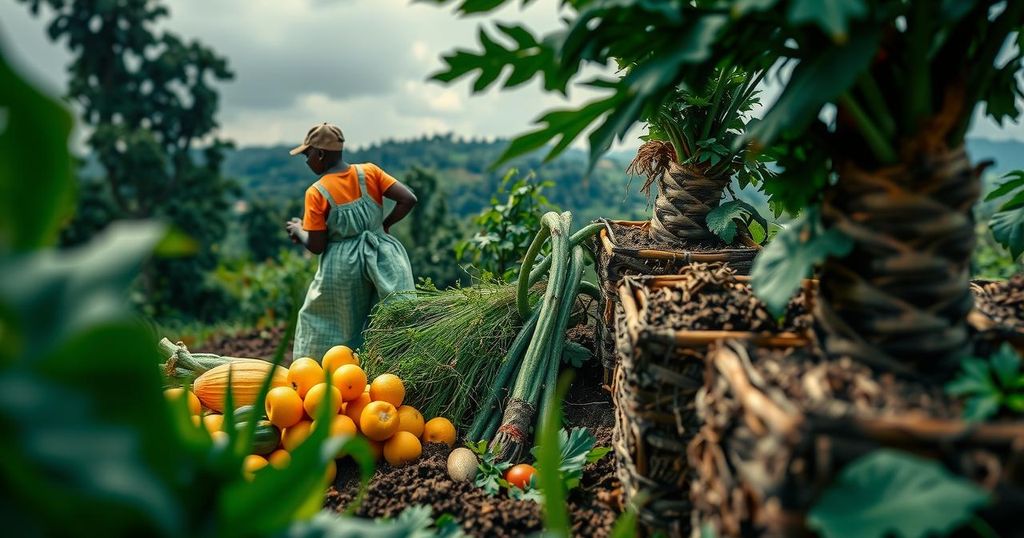FAO Leaders and DRC Prime Minister Address Food Security Challenges

FAO Deputy Director-General Beth Bechdol met with Prime Minister Judith Suminwa Tuluka in the DRC to discuss strategies for addressing food insecurity. With around 25 million people facing hunger, the focus is on enhancing agricultural resilience and supporting displaced populations. FAO aims to complement food aid with livelihood initiatives, emphasizing the need for international collaboration in rebuilding vulnerable communities affected by conflict.
In a significant meeting focused on food security and resilience in the Democratic Republic of the Congo (DRC), FAO Deputy Director-General Beth Bechdol convened with Prime Minister Judith Suminwa Tuluka. The purpose was to reinforce collaborative efforts between FAO and the government to combat food insecurity exacerbated by ongoing conflict. Throughout the six-day visit, which included FAO’s Director of Emergencies and Resilience Rein Paulsen and Regional Representative for Africa Abebe Haile-Gabriel, the importance of building resilient agricultural systems was stressed to support vulnerable populations.
Prime Minister Tuluka, DRC’s first female Prime Minister, expressed gratitude for FAO’s unwavering partnership and reiterated the government’s commitment to shared objectives. Bechdol briefed attendees on FAO’s persistent initiatives to alleviate food insecurity, which currently impacts nearly 25 million individuals in the country. The meeting highlighted the alarming food security situation, as projections indicate that by December 2024, approximately 25.6 million people will endure elevated levels of acute food insecurity, with 3.1 million classified under Emergency conditions.
Together with Minister of Agriculture and Food Security Grégoire Mutshail Mutomb, Bechdol emphasized the need for a humanitarian response that enhances livelihoods in IDP camps. During her visit to the Rusayo 2 IDP Camp, she noted ongoing FAO projects providing displaced families with micro-gardening kits and livestock support. Given that 70 percent of DRC’s population rely on agriculture, FAO’s resilience-building initiatives, executed in collaboration with UN entities and donor countries, are vital for restoring the livelihoods of communities impacted by conflict and vulnerability in the eastern provinces.
Food insecurity in the Democratic Republic of the Congo remains a pressing issue, largely driven by conflict and instability. As millions face hunger, the necessity for effective agricultural support has become critical. The Food and Agriculture Organization, with its initiatives, aims to bolster food production and build resilience among the vulnerable populations, particularly those in internally displaced persons camps. Collaborative efforts between international organizations and the DRC government are essential to address both immediate needs and long-term food security challenges.
The high-level discussions led by FAO representatives underscore an urgent need for strategic interventions to combat food insecurity in the Democratic Republic of the Congo. By enhancing agricultural resilience and supporting livelihoods, FAO aims to alleviate dependency on humanitarian aid, thereby promoting sustainable development. The commitment from both FAO and the DRC government reflects a collaborative approach to addressing the escalating hunger crisis in the region.
Original Source: www.fao.org







